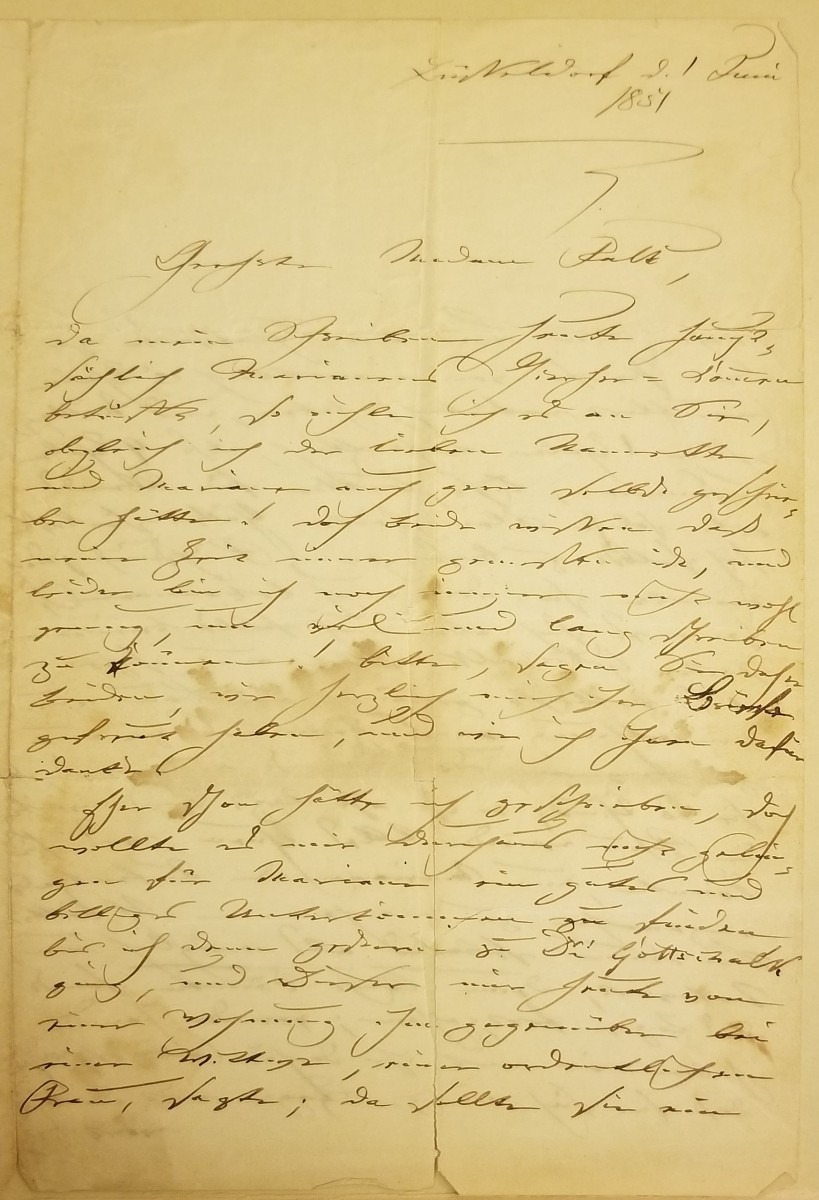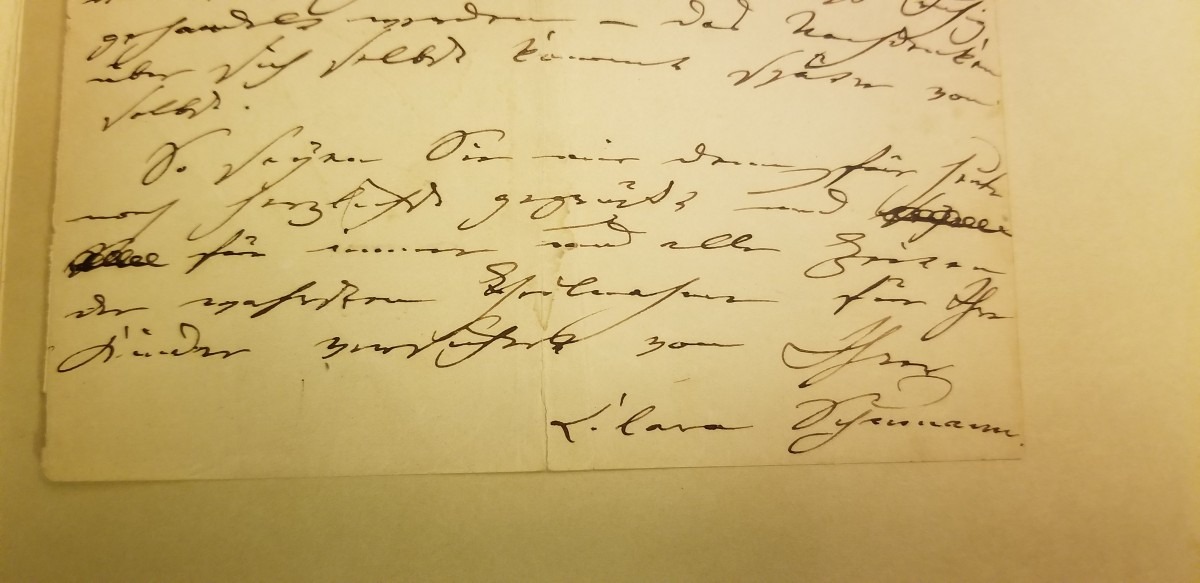The musical world recently celebrated the 200th anniversary of the birth of Clara Wieck Schumann (1819–96), the German concert pianist/composer whose remarkable career spanned much of the 19th century. While known to many primarily as the wife of the great Romantic composer Robert Schumann (1810–56), Clara was an important musician in her own right. She was a well-known concert pianist before she met Robert and had a successful performing and teaching career for many years after his death. (She did the latter while raising her and Robert’s seven children, the support for whom fell to Clara after Robert was committed to an asylum in 1854 and died there two years later.) Clara was also a noted composer. Although her output was relatively small—she largely abandoned composing in her mid-30s after Robert’s decline, when the demands of concertizing, teaching, and raising a family left little time for it—her work was highly regarded in her lifetime and remains so today.

In an amazing coincidence, just two weeks before the September 13, 2019, bicentennial of Clara Schumann’s birth, three of her original handwritten letters were discovered in the Philadelphia Orchestra Association Archives. The letters were written by Clara in May and June 1851 from Dusseldorf, Germany, where the Schumann’s were then living. Clara was 31 years old at the time, with five children and another on the way, and an active performing and teaching career. Robert’s mental illness had not yet surfaced and he was actively composing and conducting.
The first two letters—dated May 6 and June 1—are to a Mrs. Falk, the mother of two girls, Nannette and Marianne, Clara was teaching. The May 6 letter consists of Clara’s lengthy report on the girls’ progress and musical talents, in the course of which she shares some of her teaching philosophy as well as her thoughts on making a living in music and what makes a great performing artist. The June 1 letter has nothing to do with music; it concerns living arrangements for Marianne (the Falks apparently lived elsewhere and accommodations for the girls had to be found while they studied with Clara). The third letter, dated June 3, is Clara’s reply to a recent letter from Marianne. Along with exchanging pleasantries, Clara recounts in this letter her vivid reaction to hearing a performance of Beethoven’s Sixth Symphony a week earlier.
As revealed in the May 6 letter, Clara was particularly fond of Marianne, the younger sister who had started piano studies later than Nannette. Clara writes that Marianne “has a receptive mind, a fresh and lively imagination, and in her utterances great imagination” and that “her soul and mind should be developed.” She regrets that Marianne hadn’t started piano studies with her earlier, writing that “even if she would not develop into a virtuoso, she would certainly become a marvelous instructor, and basically all artists are now forced into teaching, for the time of the professional performers is past, unless there happens to come once again a great genius!”

“Concerning Nanette,” Clara writes to Mrs. Falk, “I also want to write you frankly about her. … She has perseverance, which I admire greatly considering her young age, and furthermore she has great diligence and interest. But one thing is still absent: the warmth, the soul, the passion which must transport the player to such a state that he completely forgets himself and his surroundings. This is what impresses the public and attracts it again and again to the artist. That is the true inspiration from above, which no earthly being can pass on to her, and you must leave it to time and maturity. … No doubt [Nanette] is advanced enough to play publicly, but because the warmth of feeling is still missing, I wonder whether she will have luck. Everybody will say that her playing is very ‘accomplished,’ that she had the best schooling one would expect of an artist, but that is not enough.” Clara goes on to say, “Come what may, Nanette will certainly become an excellent teacher, and can settle down in one of the world capitals, such as Paris or London, where she can surely earn much money.”
In the June 3 letter to Marianne, Clara writes that her two sons miss Marianne and then shares the following: “A week ago I went to a concert; I enjoyed everything very much, especially the Pastoral Symphony by Beethoven, which was so beautifully played that everybody was enchanted. There occurs a thunderstorm in it and I could hear the rain, thunder and lightning very plainly, as well as the cuckoo and the nightingale.” From her description, perhaps this was Clara’s first hearing of the full orchestral version of the “Pastoral” Symphony, which had been premiered 43 years earlier in Vienna, in 1808.

These recently discovered letters offer a fascinating glimpse into the thoughts and artistic vision of one of the great concert pianists of the 19th century, a pioneering woman who was well ahead of her time. How fortuitous that they came to light just in time for the bicentennial of her birth and as The Philadelphia Orchestra is celebrating WomenNOW in its 2019–20 season.